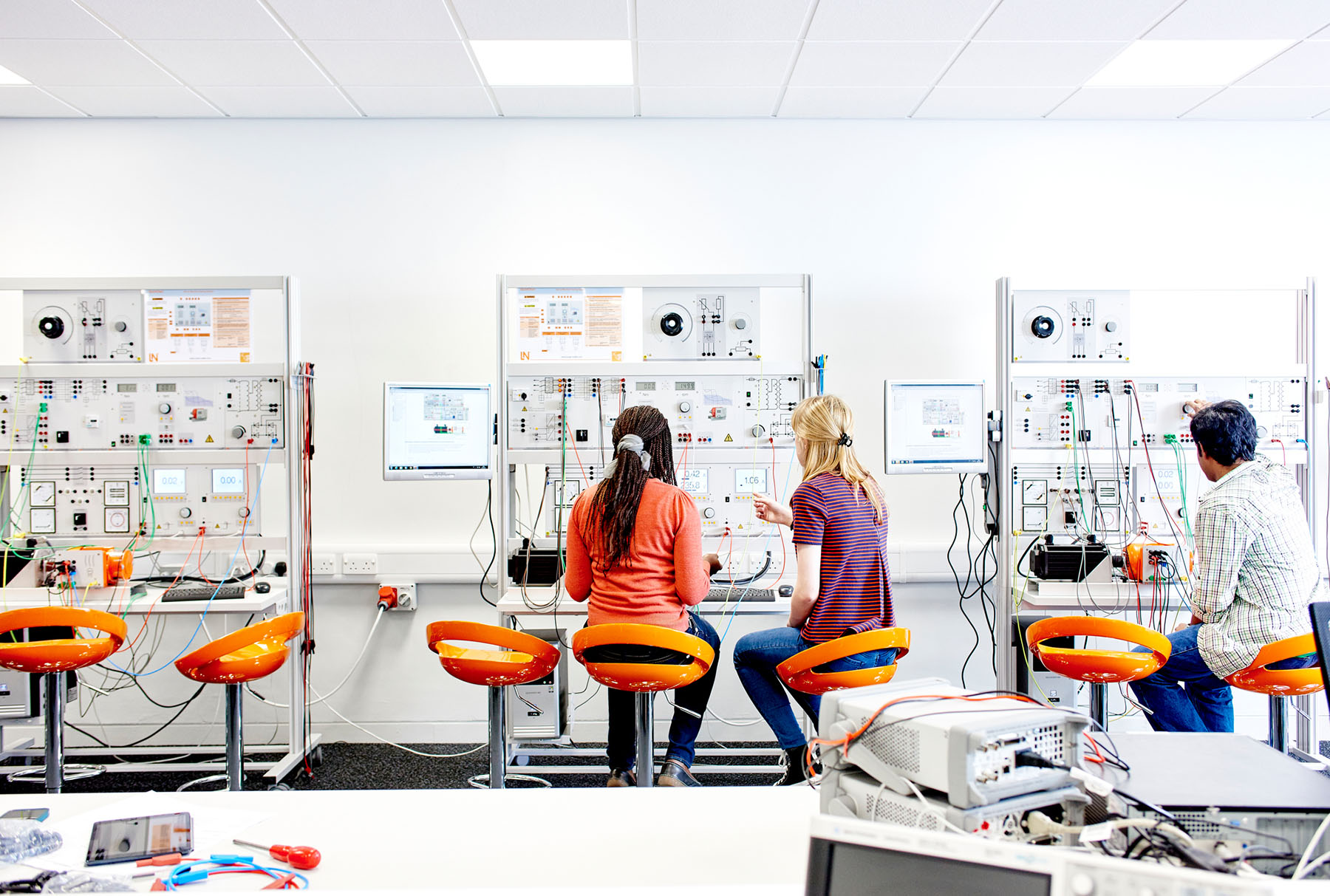Electrical and Electronic Engineering: Your Learning Experience
We’ve designed our curriculum with input from the Electrical and Electronic Engineering industry. Our courses will equip you with the technical and professional skills to become an engineer of tomorrow.
How you’ll learn
You’ll learn through design and work on integrated sustainable projects as a member of a multidisciplinary team. From wind turbines to autonomous vehicles, power systems to electronic devices, you will develop your technical and professional skills and build experience through lab work, projects, site visits and problem-solving.
Flexible first year
During your first year, you’ll explore several engineering disciplines. You’ll gain a broad understanding of engineering in a multidisciplinary context. You’ll also be taught alongside Civil Engineering and Mechanical Engineering students.
Lake District field course
During your first-year induction week, you’ll join a unique residential field course in the Lake District.
You’ll learn to work with your fellow student engineers and gain an understanding of engineering principles.
It’s the perfect opportunity for you to engage, get to know each other and form friendships.
Learn with support
We care for our students as individuals right from application stage beyond graduation. We'll support you throughout your learning journey, so you can get the support you need, when you need it.
As one of our Student Engineers, you’ll benefit from:
- an extended induction programme
- a dedicated Engineering Student Wellbeing Advisor
- a personal tutor
- a student buddy system
- a staff student committee
- international and exchange tutors
- our award-winning Careers Service
- our school employability support
The University also provides student support and wellbeing services, and our Students’ Union has a range of resources available.
Engage with industry
You'll engage with industry from the start of your journey at Newcastle University. You’ll develop the skills and knowledge demanded by the engineering sector.
You’ll gain industry exposure to professional practice through:
- guest lectures
- industrially linked projects
- placements
- professional events
- skills modules
- mock interviews
- work shadowing
- summer experiences
You can also take part in a work placement, working at any organisation in the world, with support from our dedicated team.
Work placements take place between stage 3 and 4 and are typically 9 – 12 months long. You’ll put your learning into practice and develop your professional expertise.
Study abroad opportunities may also be available, but it will depend on your degree and eligibility.
Circuit careers event
Our annual Circuit careers event is a great opportunity to:
- engage with our industrial partners
- get insight into the sector
- build your professional networks
- explore future placements
- find graduate opportunities
Our electrical and electronic facilities
Our electrical and electronic research facilities are world-leading.
- Electrical power teaching lab: This is a £250k state-of-the-art training lab for electrical power, renewable energy and motor control systems. It’s equipped with a range of Lucas-Newell test rigs, so you can develop your skills in renewable energy generation.
- Electronics teaching lab: You'll spend your time in this hands-on environment, working with waveform generators, oscilloscopes, and the latest circuit programming tools
- Clean-room microfabrication lab: These labs are temperature and humidity controlled. They're regularly maintained to ensure research and projects run smoothly.
All our facilities are managed by professional staff who are available to help.
Tour our facilities
Our facilities video tour takes you around campus and shows you some of our state-of-the-art laboratories, computer clusters, lecture theatres and more.
